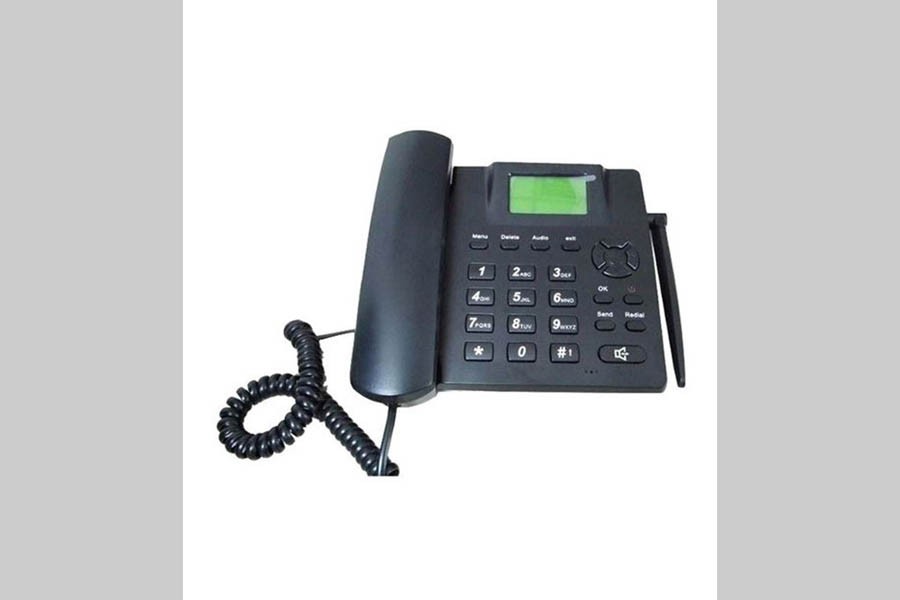
Published :
Updated :

The trend of letters sent and received through postal service has long been on decline in the country. For exchanging mails, people now find the digital medium more convenient. Emails are replacing letters. The century-old telegraph service has been officially declared abolished. But, in spite of the ubiquitous presence of mobile phones, the land telephone sector should not have felt threatened to the extent they do today. In many overseas countries, the cabled telephones are in use, though in a subdued way, alongside the mobile sets. But in Bangladesh, the latter appear to have almost routed the former. Visibly, taking into account the pattern of decline in the number of clients and speaking monetarily, the sector appears to be headed for worse times.
The land telephone sector in the country is run by Bangladesh Telecommunications Company Limited (BTCL), formerly known as T&T Board. The state-owned board was turned into a company under the name of BTCL in 2008-09. A couple of years on, the telephone sector reportedly began tumbling. Alongside, unpalatable truths vis-à-vis the falling land telephone connections and the phone's declining use continued to surface without respite. An FE report published recently touches upon segments from a distressing set of statistics relating to the BTCL-operated land phone sector. The fulcrum of the downbeat data is the public's growing apathy towards new land phone connections. To make the picture worse, a sizeable number of clients have had their lines disconnected due to nonpayment of bills for a long time.
That the BTCL currently has half a million subscribers against its capacity to give connections to 1.6 million clients hardly comes as a surprise. The fiscal year (FY) 2010-11 witnessed 971,000 land phone connections, the highest in the history of Bangladesh. In the very following FY 2011-12 the number of subscribers began falling. It declined to 943,000 that year, to plummet in the seventh FY plan to 530,000 till 2018-19. It was a year-by-year fall in the number of clients. Apparently, the impact of mobile phones on the communication sector owing to their user-friendliness played a great role in the dimming presence of land phones. The hard reality is the BTCL has been losing approximately 50,000 subscribers every year since FY 2011-12. On the other hand, the number of mobile phone users, including those with smart phones, kept rising astronomically. Apart from being outshone by this pace, the BTCL has been incurring huge losses over the years since it was turned into a company from a state entity in 2008-09.
Lots of subscribers complain of sloppy service provided by the local telephone offices. Some of the major ones are delay in repairing faulty and disrupted lines, especially during the stormy season, difficulty in clearing bills at private banks as well as online, theft of cables etc. Thanks to the digitisation of its services, the menaces of overbilling and cross-connections have stopped very significantly. Making calls from a subscriber's number stealthily is now almost impossible. Moreover, of late the company has offered some discounts to clients in making calls. Yet the number of subscribers shows few signs of increasing. It is true people continue to be hooked on mobile phones. But land phones still stand out with their classical distinction. Government offices, businesses etc are still dependent on this mode of communication, the use of which is cheaper than that of mobile phones. Technically much advanced and digitally retrofitted land phones are not too far. The BTCL cannot remain oblivious to change.


 For all latest news, follow The Financial Express Google News channel.
For all latest news, follow The Financial Express Google News channel.